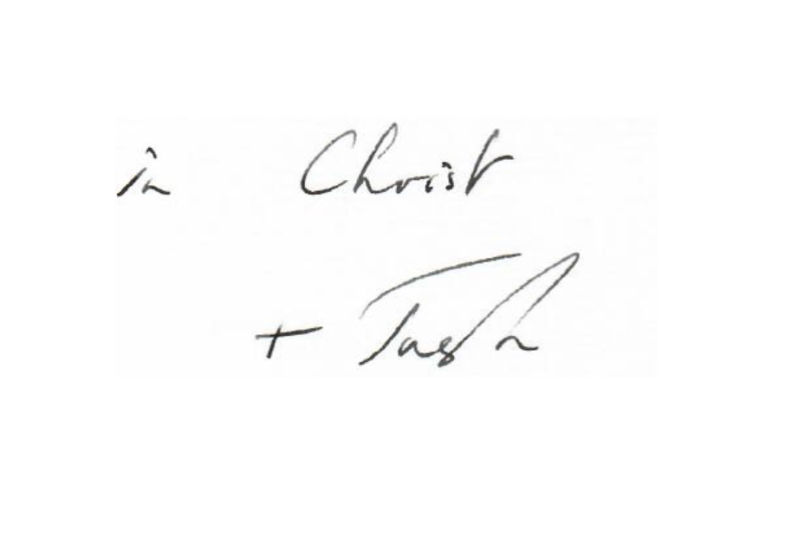
Prayer is one of the most intimate and beautiful activities in which human beings can engage, whether alone or with others. Prayer is how we establish our true identity, as individuals and as the church. In prayer our identity is changed, to be more aligned with the identity of God – the identity that in love we are called towards. As Mother Teresa said: “Prayer enlarges the heart until it is capable of containing God’s gift of himself.”
When we pray, we participate in the most dramatic partnership of creation and recreation. The partnership with God that involves gazing on his creation – on the events of the world he has made – and seeking that they be conformed to his likeness and image. We are changed, and the world is changed, as God allows us, through prayer, to share in his making of the world. We are his partners in making the world, in prayer.
Jean Vanier, who founded the L’Arche communities, said: “To pray is essentially to come to Jesus and to drink.”
We all have encounters with people who have a profound effect on us. I’ve have met two or three people over my life where one meeting altered my entire perspective on what life should be about. Prayer begins with an encounter with a person: an opening of ourselves to be with the person who is three persons in one: God, who comes to be with us, through Jesus by his Spirit, and being with us changes us.
Too often, in the way that we all talk of prayer, and especially in the way we teach about prayer, we become mechanical and manipulative. It’s as though there is a technique that makes a difference: press the buttons in the right order and everything will work.
But just as we can’t manoeuvre our way into friendships, it’s the same with prayer. Prayer has at its centre a relationship with God in Jesus Christ. We are not praying to placate or please God: we’re praying to relish and rejoice in Him. Relationships are not built on process, but on partnerships. Prayer is about sharing every part of yourself and your life with God.
So the good news, in one sense, is that you don’t have to do something to get there. God doesn’t say, ‘press these buttons in the right order’ and live a suitably good life. He just says, ‘come and be with me’. It’s an invitation.
Partnership with Jesus Christ in prayer is risky because it’s deeply costly. When we accept the invitation of Jesus to be with him, it will mean putting ourselves in places that are tough. Pushing ourselves to limits that are very demanding. So prayer is apparently, looking at it from outside, a fearful thing, and deeply risky.
The reality, of course, is that the risk is nothing: it’s a zero. To cast yourself into the hands of one who loves you immeasurably and perfectly is fairly obviously not much of a risk. Not to do so is really the risk. But it feels like a risk because in prayer that is a partnership with God, everything is on the table – we hold nothing back.
Not praying is a guarantee of a quiet life. It may be an unpleasant life. It may be a very tedious life. It may be an exceptionally depressing life. It may be a despairing life – but it will at least be a quiet life, if you like that kind of thing.
Prayer causes huge collateral damage to all our vanity and our ambition, and our hopes of self-advancement and self-centeredness. Being in partnership with God reveals to us our true identity. Not the bad things that many of us feel about ourselves, but the sheer beauty that is what God feels about us, because of what he did on the cross. And it reveals God to us in his true identity – and we can never be the same again afterwards.
There has never been a renewal of the spiritual life of the church – which means all Christians, you and me – without a renewal of prayer. That’s why I’ve made it the highest priority of my ministry.

This reflection is based on the Archbishop's Holy Week 2015 lecture 'The Risk of Prayer'. Read the full text here.